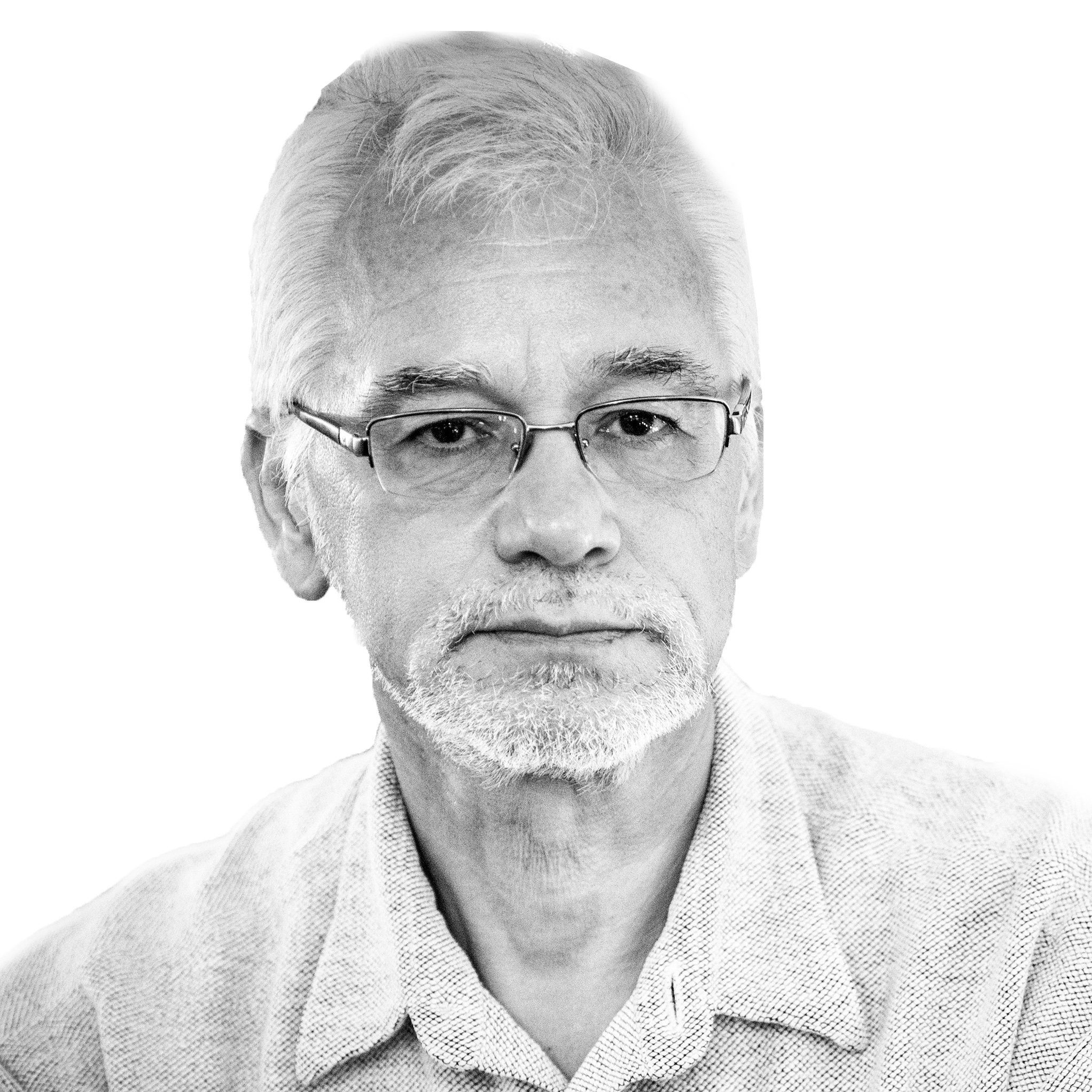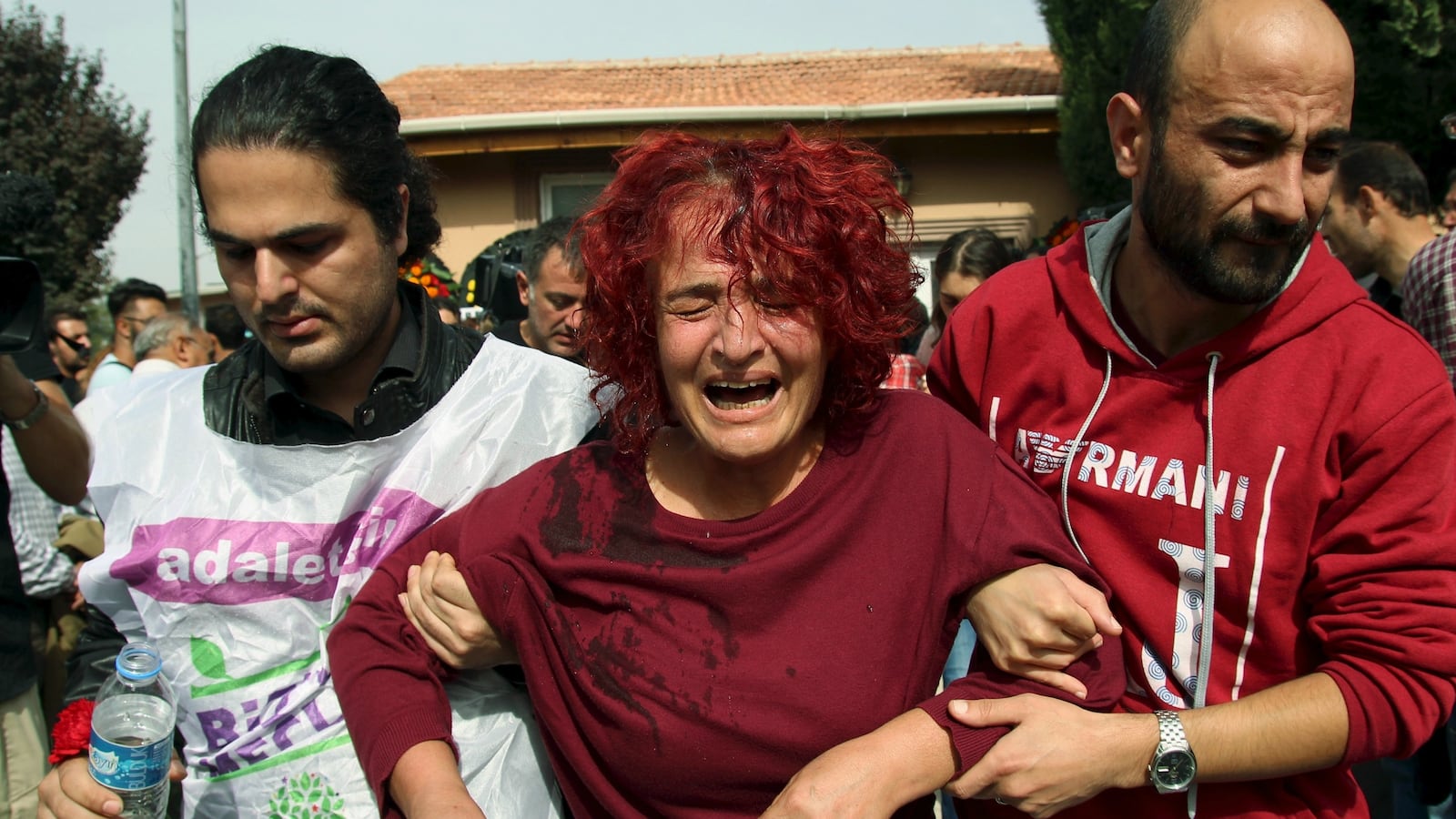ISTANBUL —The so-called Islamic State has emerged as the main suspect behind the deadliest bomb attack in Turkish history, which killed almost 100 people in the capital Ankara on Saturday. Analysts say the incident shows that the conflict in neighboring Syria is destabilizing Turkey, a crucial U.S. ally and NATO member in the Middle East.
There has been no official statement by police or the government blaming ISIS jihadists for the twin suicide attack on a peace rally in Ankara. But the official Anadolu news agency quoted police sources as saying the bombs used in Ankara— packs of TNT fortified with metal balls for increased destructive effect— were similar to the one a suspected ISIS suicide bomber used in an attack in the town of Suruc on July 20 that killed more than 30 people.
Several Turkish newspapers also reported that one of the two suicide bombers, Yunus Emre Alagoz, 25, was the brother of Suruc bomber Seyh Abdurrahman Alagoz. The other Ankara bomber was a woman, news reports said. The Alagoz brothers allegedly traveled to Syria last year to join ISIS and received bomb-making training before returning to Turkey.
According to the Cumhuriyet newspaper, ISIS militants may have lured Kurdish participants at the Ankara rally on Saturday into a deadly trap. Quoting witnesses, the newspaper reported that a bearded man with a megaphone directed members of Turkey’s biggest Kurdish party, the Peoples’ Democratic Party (HDP), to a spot in front of Ankara’s main train station where marchers were gathering for the demonstration—the very spot where the first of the two explosions killed dozens shortly afterwards. The HDP supporters apparently thought the man was one of the rally organizers, but he was unknown to the groups staging the event. Cumhuriyet also quoted witnesses as saying they heard someone shouting “Allahu ekber” — God is great — shortly before the explosion.
The Haberturk daily said police had concluded that five other potential ISIS suicide bombers had entered Turkey from Syria and were “awaiting orders” to strike. The government neither denied nor confirmed the reports. Ankara rejected accusations by the HDP that the Turkish state was somehow behind the Ankara attack.
Analysts said the suspected ISIS involvement demonstrated how lethal the danger stemming from Syria’s war had become for Turkey. “The ISIS-Kurdish war in Syria is spilling into Turkey,” Mustafa Akyol, an author and expert on political Islam, wrote on Twitter.
Nihat Ali Ozcan, an analyst specializing in security policy and terrorism at the Economic Policy Research Foundation (Tepav) in Ankara, told The Daily Beast the jihadists were hitting Kurds in Turkey because they were under pressure from the People’s Defense Units (YPG), a Kurdish militia in Syria. “The U.S. and the Kurds are preparing for an offensive against Raqqa in the coming days,” Ozcan said, referring to the northern Syrian city that has become the capital of the ISIS “caliphate”.
The New York Times reported on Oct 4 that Washington was planning an assault on Raqqa involving stepped-up allied airstrikes from airbases in Turkey as well as more than 20,000 Kurdish fighters and up to 5,000 Arab militiamen on the ground. Ozcan said ISIS was trying to teach the Kurds a lesson and also “punish” them for inflicting a defeat on the jihadist by breaking an ISIS siege of the Kurdish city in Kobane on the border with Turkey earlier this year.
Ozcan said the ISIS-Kurdish confrontation was not the only source of danger for Turkey in Syria. “Some Turks have joined Al-Qaeda groups in Syria, others are fighting in pro-government militias” supporting Syrian President Bashar al-Assad, he said. “And all of them carry the war back to Turkey.” Ozcan said in a way Turkey was beginning to resemble Iraq, a country suffering from violent clashes between competing factions. “Welcome to the Middle East,” Ozcan said.
In its public statements, the Turkish government says that Turkey is strong enough to deal with the fall-out from the Syrian crisis. “Our national capabilities are sufficient for Turkey’s defense,” foreign ministry spokesman Tanju Bilgic said after NATO offered to send troops to Turkey to counter a perceived threat posed by Russian forces in Syria.
But privately, Turkish officials paint another picture. “Turkey can’t handle it alone anymore,” one senior official said on condition of anonymity. He called on the European Union, NATO and the West in general to “take responsibility” in Syria.
The call comes after years of Turkey, which sees itself as a regional leader, pushing for Assad’s removal from power in a bid to re-shape the region according to its own interests. Turkey’s opposition parties say Ankara’s support for regime change in Damascus involved arms shipments to radical groups fighting in Syria, a charge Ankara denies.
The recent start of Russian airstrikes on behalf of Assad’s forces in Syria has complicated matters further. Moscow’s involvement is likely to prolong Assad’s political life while constituting a blow to Turkish plans for the creation of a “safe zone” in northern Syria to thwart a drive for Kurdish autonomy there. Iran and Lebanon’s Hezbollah militia are also supporting Assad.
In Turkey itself, the Syrian conflict has not spawned the threat posed by ISIS but also played a part in the suspension of peace talks between Ankara and Kurdish rebels to end a long-running guerrilla war. Problems were piling up, the official said. “Syria has poisoned everything,” he said.






